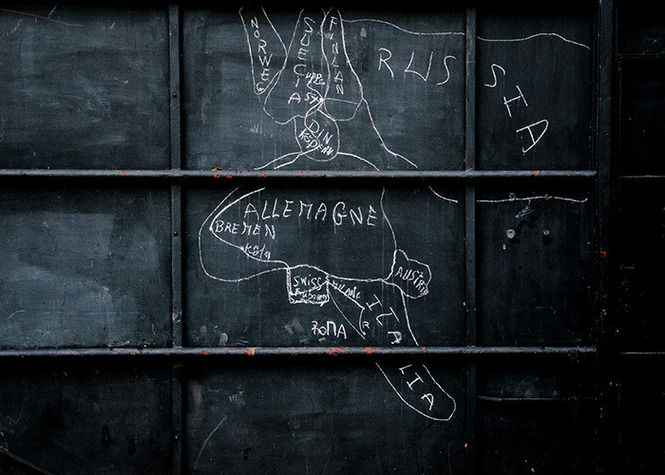The Baobab center is an extraordinary example of how much can be done, by each and every one of us, to help address what is arguably the biggest humanitarian crisis of our time.
The Baobab is a small transit center for refugees and asylum seekers who do not wish to be identified in Italy, as they hope to continue their journey towards "the real Europe" - many fantasize about Germany - and find protection there.
The Baobab as a grassroots movement
The Baobab is entirely run by volunteers and does not receive a single euro from public authorities, and, as such, it offers a striking example of the impact that can be made by grassroots movements that help and welcome refugees.
The center was opened in a Eritrean cultural club in early June 2015 to provide a safe haven to those evicted from the makeshift camps of Ponte Mammolo and Stazione Tiburtina, and ended up hosting as many as 300 people a day, all thanks to the voluntary work of common citizens and civil society organizations.
Every day people come in bringing donations of every kind - food, clothes, toiletries and medicines being the most needed - and usually stay on to lend a hand. Two proper dormitories - one for men, one for women - have been set up, together with an infirmary (where first-aid treatment is provided by voluntary medics), a self-run barber shop and a huge kitchen to prepare the two daily meals offered (during the summer, as many as 500 people came to lunches and dinners.)
One day at the Baobab
The 19 Million projects teams were supposed to visit the Baobab just once, during a bright and sunny November afternoon, and yet people kept going back there again and again, to bring food and talk some more with the people temporarily living in the center.
As things are currently somewhat calmer at the center - which is now hosting fewer than 100 people - and some of the amazing volunteers working there took the time to show us around and explain how things work. Viola, who teaches Pilates when she is not at the Baobab, shows us how they prepare the welcome kit for persons who just arrived at the center.
In a chaotic room where mountains of clothes are piled, she smiles at the thought of when women come in to what they call "the boutique" to pick their own clothes, asking to swap an item with another that is more to their taste: "It is then that you understand they are starting to feel safe."
See you soon
Ultimately, we end up in the outside area, decorated with graffiti - "Refugees Welcome," it says, and, "Protect People, Not Borders." There are also colorful murals. Some kids ask us to play table football with them; a young man announces, "I am good at football, too," and demonstrates the trueness of his word with some kick-ups; another asks one of the photographers to try out his camera and ends up taking pictures of all those hanging around.
Conversations keep sparking and flowing, and it is already beginning to turn dark when we finally turn to leave. A chatty teenage girl wearing a pink T-shirt and matching earrings waves to us from the corner of the street and asks us to come back soon.
We certainly will. What about you?



